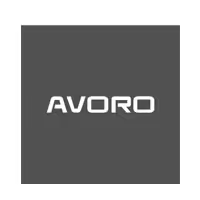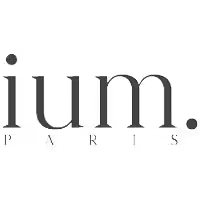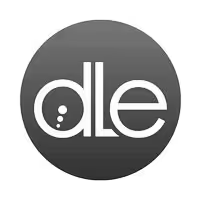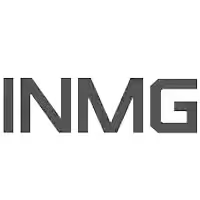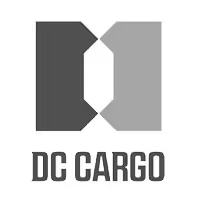The Role of Keyword Research in Roofing PPC Campaign Success

The roofing industry is highly competitive, and to stand out, businesses must leverage effective marketing strategies. Among these strategies, Pay-Per-Click (PPC) advertising has emerged as a powerful tool to drive targeted traffic. However, the success of a roofing PPC campaign significantly hinges on thorough keyword research. Understanding the intricacies of keyword selection and optimization can mean the difference between a successful campaign and wasted resources.
Why Keyword Research is Critical for Roofing PPC Campaigns
Keyword research serves as the foundation for any successful PPC campaign in the roofing sector. When done correctly, it allows businesses to target the right audience, increase click-through rates (CTR), and generate quality leads.
In a bustling roofing market, the right keywords can help roofing companies connect with homeowners looking for specific services such as roof repair, installation, or maintenance. Poorly chosen keywords, on the other hand, can lead to irrelevant clicks and drain budgets without delivering results. This makes it essential for roofing companies to invest time and resources into comprehensive keyword research to ensure their advertising efforts yield the best possible return on investment.
Moreover, the roofing industry often experiences seasonal fluctuations, with certain times of the year seeing a spike in demand for services. By conducting thorough keyword research, companies can identify seasonal trends and adjust their PPC campaigns accordingly. For instance, keywords related to roof inspections may see increased searches in the spring, as homeowners prepare for potential summer storms. By aligning their campaigns with these seasonal trends, roofing companies can maximize their visibility and capture leads at the right moment.
Understanding Search Intent
One of the key components of effective keyword research is understanding search intent. It is crucial to distinguish between the different types of search intents—informational, navigational, transactional, and commercial investigation.
For roofing services, the focus should be on transactional keywords that indicate a user is ready to make a decision. These include phrases like "roof repair near me" or "best roofing contractors in [City Name]." By analyzing search intent, roofing companies can ensure they attract customers who are ready to purchase their services. Additionally, incorporating long-tail keywords can also be beneficial, as they often reflect more specific queries that indicate a higher level of intent. For example, a search for "emergency roof repair after storm" suggests an immediate need, allowing companies to tailor their ads to address urgent situations and stand out in a crowded marketplace.
Competitive Analysis for Effective Planning
Another reason why keyword research is critical is that it allows businesses to perform a competitive analysis. By evaluating which keywords competitors are bidding on and which are driving their success, roofing companies can identify opportunities and gaps in the market.
Tools such as SEMrush and Ahrefs can provide insights into competitors’ campaigns. Understanding this data helps roofing companies not only choose high-performing keywords but also avoid oversaturated markets where competition is fierce. Furthermore, analyzing competitors’ ad copy and landing pages can reveal valuable insights into what messaging resonates with potential customers. By adopting successful strategies and differentiating their offerings, roofing companies can create compelling ads that capture attention and drive conversions. This strategic approach not only enhances the effectiveness of PPC campaigns but also contributes to building a strong brand presence in the roofing industry.
Identifying High-Intent Keywords for Roofing Services
The next step in the keyword research process is to identify high-intent keywords. This involves finding terms that indicate a strong likelihood of conversion. Examples include "emergency roof repair" or "roof replacement cost." These keywords indicate that the searcher is further down the purchasing funnel and is actively seeking services. Understanding the intent behind these keywords can help roofing companies tailor their marketing strategies to meet the specific needs of potential customers, ultimately leading to higher conversion rates.
Using keyword research tools, businesses can uncover search volumes, competition levels, and cost-per-click (CPC) data for various keywords. Selecting keywords with high search volumes but manageable competition can significantly improve PPC performance. Additionally, analyzing seasonal trends in keyword searches can provide insights into when homeowners are most likely to seek roofing services, allowing companies to optimize their ad spend and promotional efforts during peak times.
Long-Tail Keyword Strategy
In addition to high-intent keywords, roofing companies should consider incorporating long-tail keywords into their campaigns. Long-tail keywords are more specific phrases that often have lower search volumes but a higher conversion rate. Examples include "affordable shingle roof replacement in [City Name]" or "best roofing services for old houses." These keywords not only help in attracting a more targeted audience but also often face less competition, making it easier for businesses to rank higher in search results.
By integrating long-tail keywords, roofing companies can attract a niche audience who may be searching for very specific services. This targeted approach typically results in a higher CTR and lower costs per acquisition. Moreover, long-tail keywords can also assist in creating content that resonates more deeply with potential customers, such as blog posts or FAQs that address specific concerns or questions related to roofing projects.
Utilizing Local Keywords
For roofing companies, local keyword targeting is vital. Homeowners generally prefer hiring local contractors due to proximity and trust factors. Therefore, including location-based keywords in campaigns, like “roof installation in [Neighborhood Name],” can significantly enhance visibility in local search results. This not only helps in connecting with local customers but also builds a sense of community and reliability around the brand.
By optimizing ads with local keywords, roofing companies can improve their chances of attracting clients who are searching for nearby services. This strategy not only increases relevance but also boosts local SEO rankings, as the PPC ads appear in more localized searches. Additionally, leveraging local keywords can facilitate the creation of localized content, such as case studies of successful projects in the area, which can further establish the company as an authority in the local roofing market. Engaging with local community events or sponsorships can also enhance visibility and reinforce the brand's commitment to serving the community, making it more appealing to potential customers.
Using Long-Tail Keywords to Attract Specific Customers
Long-tail keywords play a significant role in attracting specific customers looking for specialized roofing solutions. By implementing these phrases in PPC campaigns, businesses can target distinct segments of the market. This strategy not only improves the chances of reaching potential customers but also enhances the overall return on investment (ROI) for marketing efforts. As competition grows in the roofing industry, leveraging long-tail keywords becomes essential for standing out in a crowded marketplace.
For instance, if a contractor specializes in eco-friendly roofing solutions, incorporating phrases like "eco-friendly roof materials" or "solar panel roofing installation" can help reach environmentally conscious consumers. This tailored approach ensures that marketing efforts resonate better with the audience's needs. Additionally, long-tail keywords often have lower competition compared to broader terms, allowing businesses to rank higher in search results and attract more qualified leads who are ready to make a purchasing decision.
Engaging Ad Copy and Keywords
The synergy between ad copy and keywords cannot be overstated. To maximize ad efficacy, the chosen keywords should be seamlessly integrated into engaging ad copy. A well-crafted ad that directly addresses users' search queries increases the chance of clicks. Furthermore, utilizing specific pain points or desires in the ad copy can create a stronger connection with the target audience. For example, highlighting the long-term cost savings of eco-friendly roofing options can appeal to budget-conscious homeowners looking for sustainable solutions.
Using emotional language and strong calls-to-action (CTAs) in ads with targeted long-tail keywords helps to convert impressions into clicks. For instance, an ad reading “Get Your Eco-Friendly Roof Installed Today – Call Us for a Free Estimate!” appeals directly to environmentally conscious consumers. In addition, incorporating testimonials or success stories within the ad copy can build trust and credibility, making potential customers more likely to engage. By showcasing real-life examples of satisfied clients who have benefited from eco-friendly roofing, businesses can further enhance their appeal and encourage prospective customers to take action.
Optimizing Ads Based on Keyword Performance Metrics
Keyword optimization is not a one-time task. Continuous monitoring of keyword performance is essential to maximize ROI on PPC campaigns. This involves analyzing various performance metrics such as CTR, conversion rate, and Quality Score.

If specific keywords are underperforming, adjustments should be made. This can include tweaking ad copy, changing bids, or even pausing keywords that do not bring satisfactory results. Regular A/B testing with different ad variations can further enhance performance and yield better outcomes.
Utilizing Negative Keywords
Another critical aspect of optimizing keywords is the use of negative keywords. Negative keywords prevent ads from appearing in irrelevant searches, which can save businesses valuable advertising dollars.
For example, if a roofing company only provides residential services, including “commercial” as a negative keyword can help filter out non-relevant traffic. This not only improves the relevance of traffic but also enhances the overall campaign efficiency.
How Our Expertise in Keyword Research Boosts Roofing PPC Success
At our firm, we recognize the indispensable role of keyword research in executing successful roofing PPC campaigns. Our team of experts employs industry-standard tools and proven methodologies to identify high-performing keywords tailored to your specific roofing services.
We conduct comprehensive market research and competitive analysis, ensuring that your campaigns are strategically positioned to capture high-intent traffic while minimizing unnecessary ad spend. By continuously optimizing your campaigns based on performance metrics, we help you maximize your marketing ROI.
Your Partner in Roofing Success
With our expertise, you can focus on what you do best—providing quality roofing services—while we handle the intricate details of your PPC campaigns. Our data-driven approach ensures that your advertising is not just getting clicks but is driving meaningful conversions.
In conclusion, successful roofing PPC campaigns rely heavily on effective keyword research. By leveraging high-intent, long-tail, and local keywords, roofing companies can reach their target audience while optimizing their advertising efforts for maximum impact.

As a Google Ads expert, I bring proven expertise in optimizing advertising campaigns to maximize ROI.
I specialize in sharing advanced strategies and targeted tips to refine Google Ads campaign management.
Committed to staying ahead of the latest trends and algorithms, I ensure that my clients receive cutting-edge solutions.
My passion for digital marketing and my ability to interpret data for strategic insights enable me to offer high-level consulting that aims to exceed expectations.
Google Partner Agency
We're a certified Google Partner Agency, which means we don’t guess — we optimize withGoogle’s full toolkit and insider support.
Your campaigns get pro-level execution, backed by real expertise (not theory).

4.9 out of 5 from 670+ reviews on Fiverr.
That’s not luck — that’s performance.
Click-driven mind
with plastic-brick obsession.
We build Google Ads campaigns with the same mindset we use to build tiny brick worlds: strategy, patience, and zero tolerance for wasted pieces.
Data is our blueprint. Growth is the only acceptable outcome.

